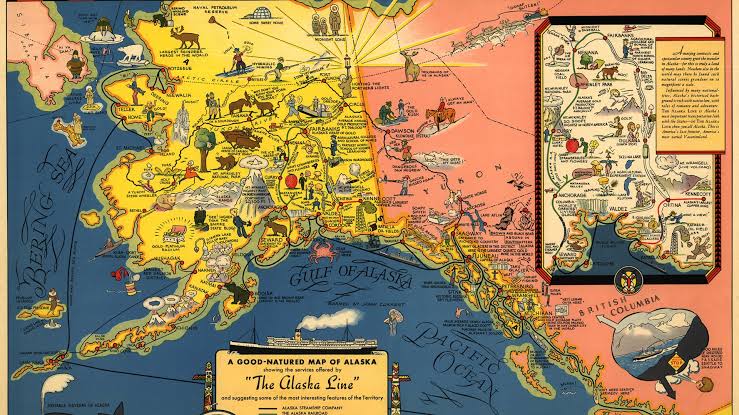Alaska: A Forgotten Folly Turned Treasure
In the vast landscape of American history, few transactions have been as controversial, yet ultimately as fruitful, as the acquisition of Alaska from Russia. This historic deal, often referred to as "Seward's Folly" or "Seward's Icebox," is an intriguing testament to the

In the vast landscape of American history, few transactions have been as controversial, yet ultimately as fruitful, as the acquisition of Alaska from Russia. This historic deal, often referred to as "Seward's Folly" or "Seward's Icebox," is an intriguing testament to the unpredictable dividends of diplomatic tenacity.
Back in 1867, then US Secretary of State William H. Seward spearheaded the purchase of Alaska, a barren expanse known more for its harsh winters than its potential. For the price of 7.2 million dollars - about two cents an acre - the United States acquired an area twice the size of Texas, stretching over 586,412 square miles. The deal was ridiculed by American critics who deemed it a wasteful extravagance, a folly of Seward's shortsightedness. Yet, Seward, undeterred, recognized an opportunity that others could not see.
On the other side of the transaction stood a cash-strapped Russia, still reeling from the costly Crimean War with Britain, France, and the Ottoman Empire. The Russian Tsar, Alexander II, was persuaded that they were in danger of losing Alaska without compensation in the future, considering their weakened military strength and the looming threat of the British forces in nearby Canada. Additionally, the costs and complexity of managing interests in Alaska were escalating, with the decline of the marine animal population, particularly sea otters, whose fur had been a lucrative trade item.
Selling Alaska, a distant and hard-to-defend territory, was deemed a prudent move. It helped replenish the Russian treasury while removing a potential source of conflict with Britain. Moreover, the transaction was favorably viewed as a way of bolstering the increasingly powerful United States as a buffer between British Canada and Russia's Far Eastern holdings.
The skepticism that met the purchase of Alaska gradually subsided when the Klondike Gold Rush struck in the late 1890s, followed by the discovery of copper, fish, furs, and eventually oil. Alaska's wealth of resources gradually became apparent, validating Seward's once scorned vision. Today, Alaska stands as a significant contributor to America's oil reserves, fisheries, and tourism industry. In hindsight, the deal seems an act of prophetic genius rather than folly.
The acquisition of Alaska is a poignant reminder of how the judicious risk of today can become the profound success of tomorrow. William Seward's audacious decision is a testament to the potential inherent in diplomatic foresight and the courage to look beyond the prevailing sentiment. This "Icebox" has indeed turned out to be a treasure chest, proving that value often lies in unexpected places and requires the vision to see beyond the immediate.




